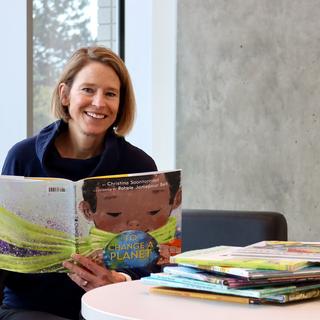The 2023-24 school year will be the first year that all school districts in BC will implement a provincial proficiency scale instead of letter grades on report cards from kindergarten to Grade 9.
Students in Grades 10 to 12 will still receive letter grades and percentages on report cards. Education Professor Dr. Paula Waatainen, a former high school social studies teacher, studies classroom assessments and reporting and designing assessments of competency. She weighs in on the changes.
Can you briefly describe the new progress reporting structure and how this new model came about?
BC’s new reporting policy is the result of several years of research and collaboration to update how teachers assess, evaluate and report on student learning. The change aligns assessment and reporting practices with a provincial curriculum that was revised several years ago. Rather than having a primary focus on memorizing content knowledge, the goal is to prepare students to tackle real-world problems by mobilizing deeper conceptual understanding and transferable competencies (knowledge, skills, ways of thinking, etc.).
For kindergarten to Grade 9, teachers will report using the provincial proficiency scale (emerging, developing, proficient, extending) to capture where students are in the development of their competencies and conceptual understanding, while letter grades and percentages will still be used in Grades 10 to 12 for graduation program courses. As well, all teachers will offer feedback that is specific and “strength-based,” showing what students are demonstrating they can do and what their next steps should be. All students will have a greater voice in assessment and reporting by self-assessing in core competencies like critical thinking and communication, and in setting goals for their learning.
What are the benefits of using a proficiency scale instead of letter grades?
Letter grades and percentages have traditionally been calculated based on what a student “did” in a certain moment – that unit test on fractions or their project on Ancient Egypt, for example. Averaging numerical scores in a grade book often missed important information about what students could really do. The proficiency scale reflects what students are showing us they “can do” and what they understand at the time of reporting. Imagine the student who demonstrates a higher level of proficiency the third time they try making a scientific observation compared with the first time they tried, or the student who can demonstrate their understanding of how elections work in a class discussion better than through a quiz. Their teachers can collect assessment evidence over time and in different ways, then make judgements on placement on the proficiency scale based on best, most recent evidence at the time of reporting, with ideas for next steps.
What else should parents know about this system?
For students, parents and teachers in mid-Island districts, the changes won’t be that noticeable in the fall, as these districts have been among those that have already been piloting the changes for a few years. Parents in Grades 10 to 12 will still see the use of letter grades and percentages, but with some more focus on assessing where students are in competency development. The Ministry of Education has recently released parent information booklets in multiple languages to explain these changes. Here’s the English language booklet.
As a parent of three, I understand the comfort in seeing a letter grade or percentage in understanding how my kid is doing. While my eldest son had letter grades from Grade 4 up, my 11-year-old daughter has been assessed using a proficiency scale each year as our district piloted these changes. There is a learning curve associated with the changes for everyone involved, but I’ve noticed that my daughter is entirely comfortable with the proficiency scale, the feedback we received is much more specific to her own learning trajectory, and she can self-assess with more detail and sophistication than what her brothers likely could do at that age. This innovation is unique to BC and a work in progress, but I support the changes.





